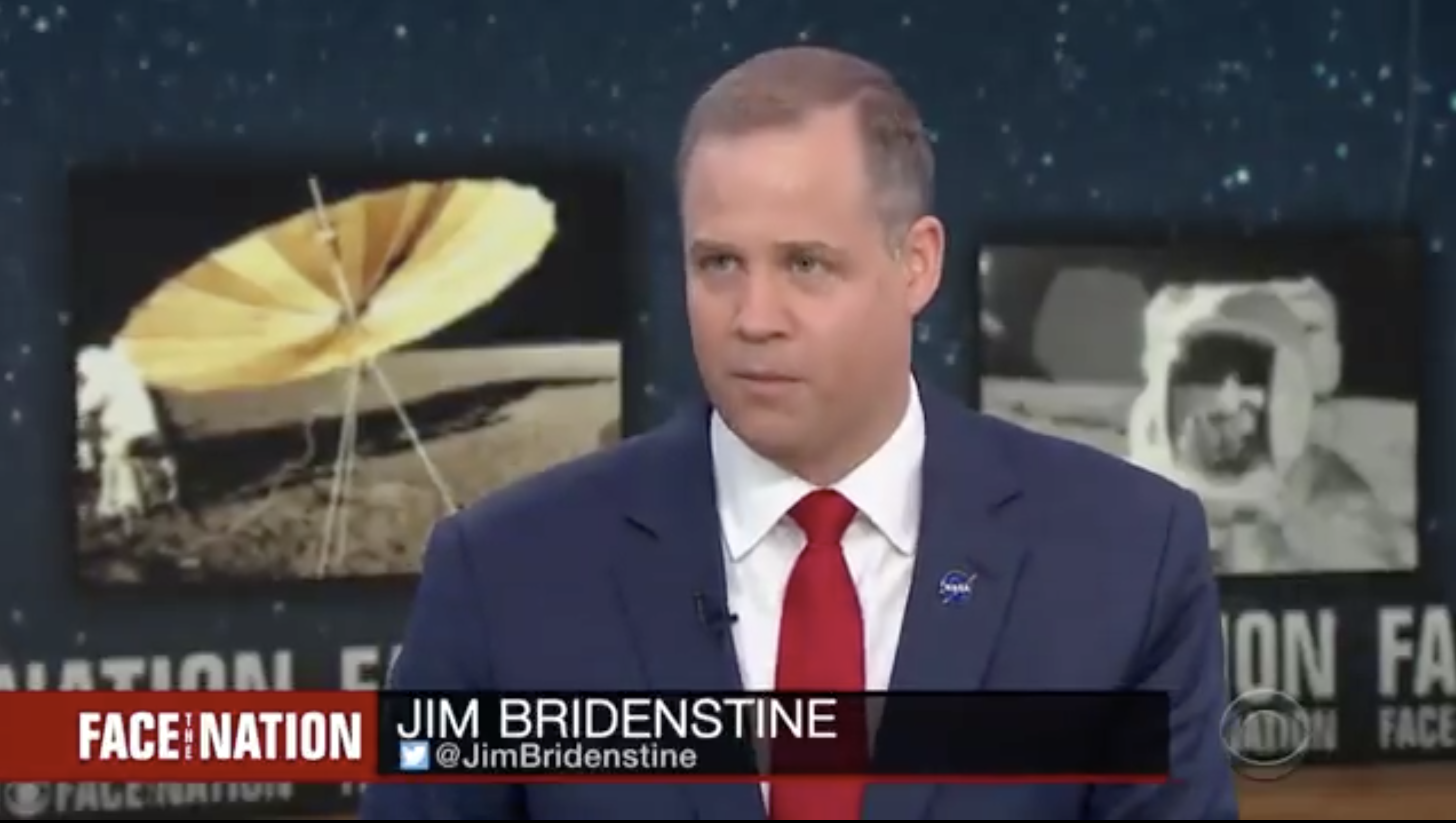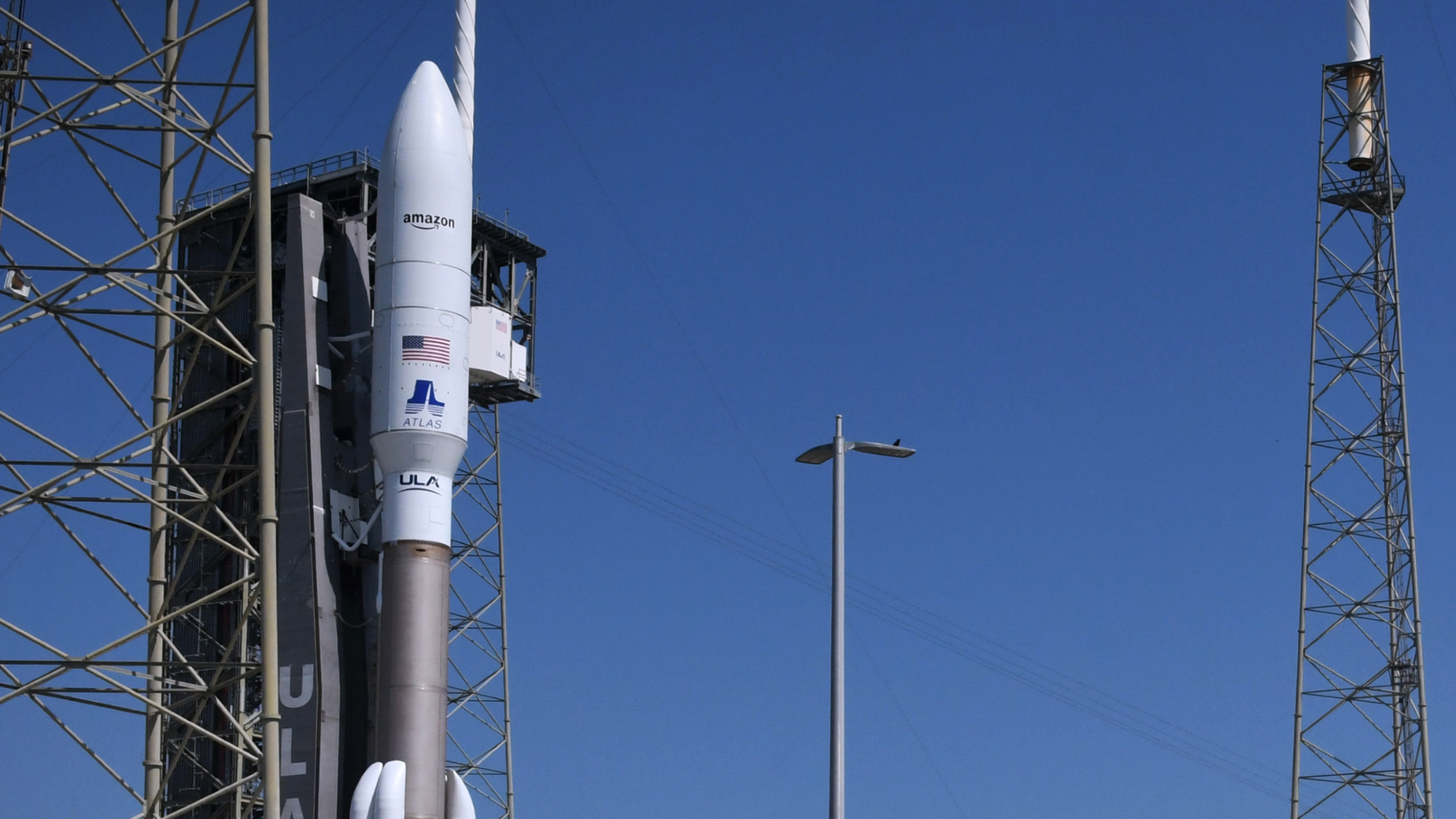NASA admin says political, not technical risk is reason humans haven't already been to Mars


A free daily email with the biggest news stories of the day – and the best features from TheWeek.com
You are now subscribed
Your newsletter sign-up was successful
If a few things had gone differently, you apparently could be reading these words from Mars.
NASA Administrator Jim Bridenstine told CBS' Margaret Brennan on Sunday's edition of Face the Nation that the space agency tried to get back to the moon and onto Mars in the 1990s and 2000s, but the programs that were brought forth in those days apparently took too long and cost too much money, increasing the political risk. Bridenstine said that without that political risk, Americans certainly would have returned to the moon, as well as gone on to Mars.
So in order to mitigate that political risk, NASA has decided to speed up the timeline to within five years, which is why the Trump administration's budget request was amended. Bridenstine says NASA will have the resources to make travel to the moon — followed possibly by flight to Mars — a reality.
The Week
Escape your echo chamber. Get the facts behind the news, plus analysis from multiple perspectives.

Sign up for The Week's Free Newsletters
From our morning news briefing to a weekly Good News Newsletter, get the best of The Week delivered directly to your inbox.
From our morning news briefing to a weekly Good News Newsletter, get the best of The Week delivered directly to your inbox.
That may sound exciting, but there's another way to interpret Bridenstine's comments. He told Brennan that there are two types of risk in space travel: the aforementioned political risk and the technical one, which, frankly, sounds a lot scarier.
However, the way Bridenstine tells it, NASA isn't all that worried about the technical risk, even as Brennan pointed out moon travel relies on several things that have yet to be put into use; a rocket, space capsule, and lunar lander among them. In other words, in the attempt to lower the political risk, the technical aspects would seemingly get more challenging in a race against time. Bridenstine, though, confidently maintained that with the right resources in tow, the agency will get it done.
A free daily email with the biggest news stories of the day – and the best features from TheWeek.com
Tim is a staff writer at The Week and has contributed to Bedford and Bowery and The New York Transatlantic. He is a graduate of Occidental College and NYU's journalism school. Tim enjoys writing about baseball, Europe, and extinct megafauna. He lives in New York City.
-
 Why is the Trump administration talking about ‘Western civilization’?
Why is the Trump administration talking about ‘Western civilization’?Talking Points Rubio says Europe, US bonded by religion and ancestry
-
 Quentin Deranque: a student’s death energizes the French far right
Quentin Deranque: a student’s death energizes the French far rightIN THE SPOTLIGHT Reactions to the violent killing of an ultraconservative activist offer a glimpse at the culture wars roiling France ahead of next year’s elections
-
 Secured vs. unsecured loans: how do they differ and which is better?
Secured vs. unsecured loans: how do they differ and which is better?the explainer They are distinguished by the level of risk and the inclusion of collateral
-
 Australia’s teen social media ban takes effect
Australia’s teen social media ban takes effectSpeed Read Kids under age 16 are now barred from platforms including YouTube, TikTok, Instagram, Facebook, Snapchat and Reddit
-
 Google avoids the worst in antitrust ruling
Google avoids the worst in antitrust rulingSpeed Read A federal judge rejected the government's request to break up Google
-
 Supreme Court allows social media age check law
Supreme Court allows social media age check lawSpeed Read The court refused to intervene in a decision that affirmed a Mississippi law requiring social media users to verify their ages
-
 Nvidia hits $4 trillion milestone
Nvidia hits $4 trillion milestoneSpeed Read The success of the chipmaker has been buoyed by demand for artificial intelligence
-
 X CEO Yaccarino quits after two years
X CEO Yaccarino quits after two yearsSpeed Read Elon Musk hired Linda Yaccarino to run X in 2023
-
 Musk chatbot Grok praises Hitler on X
Musk chatbot Grok praises Hitler on XSpeed Read Grok made antisemitic comments and referred to itself as 'MechaHitler'
-
 Disney, Universal sue AI firm over 'plagiarism'
Disney, Universal sue AI firm over 'plagiarism'Speed Read The studios say that Midjourney copied characters from their most famous franchises
-
 Amazon launches 1st Kuiper internet satellites
Amazon launches 1st Kuiper internet satellitesSpeed Read The battle of billionaires continues in space
